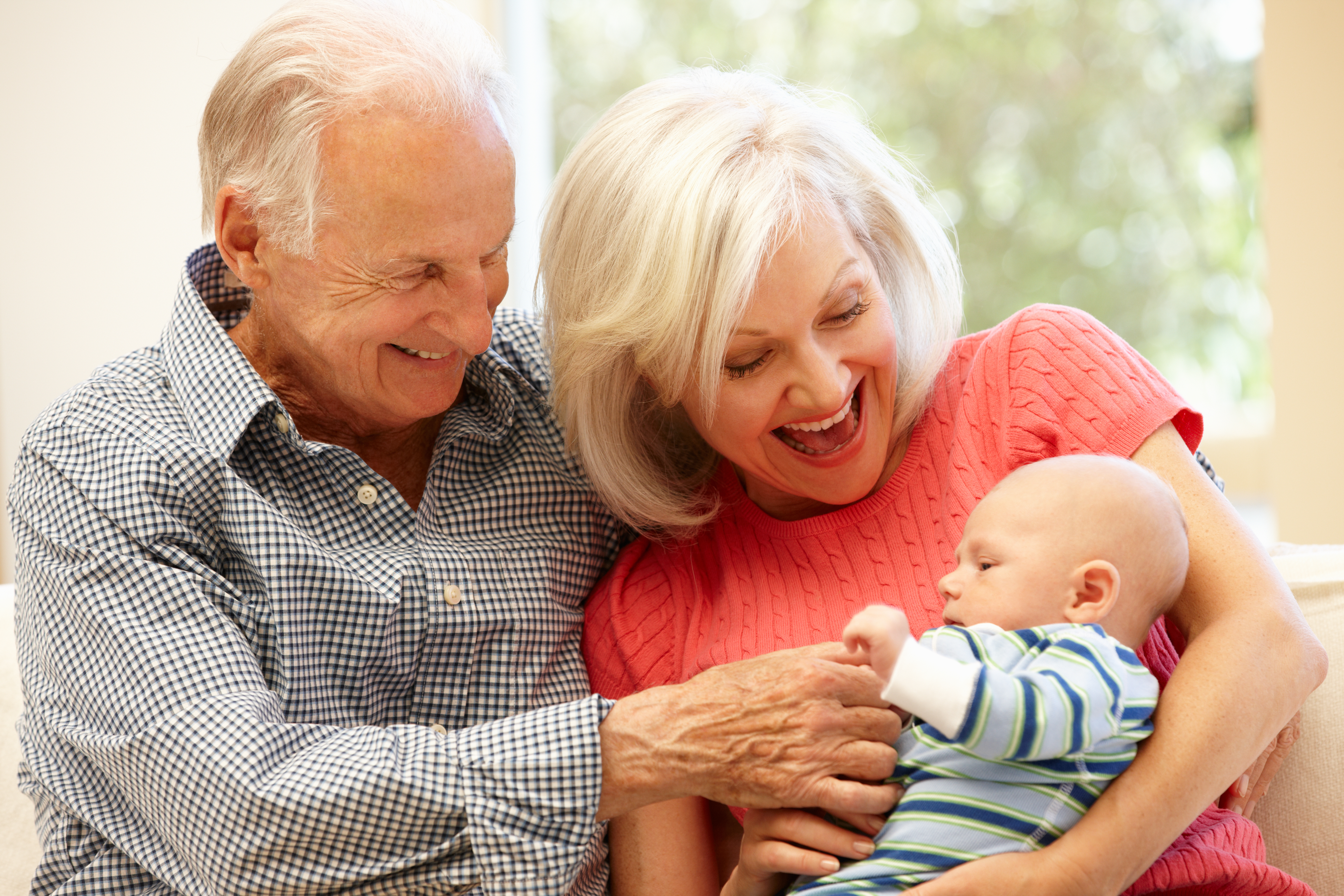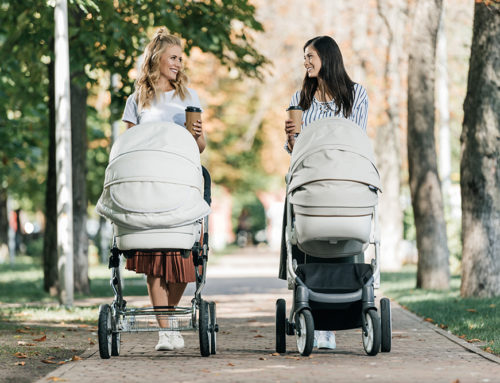_x000D_
If you’re a new parent heading back to work, and your parents or in-laws have agreed to take care of your baby while you’re at the office, consider yourself lucky. But, if you’re a bit hesitant about getting their home outfitted with all the baby gear essentials—not to mention laying down your caretaking expectations—follow these expert tips for ensuring a good experience for everyone.
Create a Checklist
Naturally, you can’t bring over every item from your baby’s nursery; not only is it impractical, but it gets expensive! But not too worry—according to Tania Dilworth, founder of To Due Baby Planning (www.toduebaby.com), you don’t need much when babies are newborns. “As they grow, you can add items along the way, which helps with the upfront cost,” she says.
For starters, simply break babycare down into key areas: sleeping, feeding and playtime. For naps and bedtime, Dilworth recommends a portable crib. “Pack and plays work really well for grandparents’ house because they can grow with the baby and folded up and put away when they’re not there.”
If your baby will be sleeping in a crib that has passed down from another family member, this can be a treat for a nostalgic grandparent. However, cautions Julie McCaffrey of BabyNav Baby Planners (www.babynavbabyplanners.com), be sure it’s safe and in good condition. “The crib should have not have any cracked or peeling paint, should not be drop-side, should not have any missing screws and should not have slats with openings any wider than 2 3/8-inch,” she notes. Nothing soft should be placed in the crib, except for a fitted sheet. “This is often new for grandparents who may be used to using blankets or that want to put cute stuffed animals in the crib,” she adds.
For meals, invest in some bottles and a bottle brush for newborns and older. Once your child begins eating solids, you’ll need feeding bowls and baby spoons. When looking for a high chair, McCaffrey recommends a space-saving seat that can be folded up and stored when your child isn’t there. If Grandma is anxious to pull out a gently used high chair, check to see that it has a five-point harness without any tears or loose parts.
Prepared to Play (and Ride)
When your little one isn’t napping or feeding, she’ll have plenty of opportunity to play. But don’t think you have to pack up every toy from home. Dilworth is a fan of using a portable play yard for a safe play space, or a play mat for tummy time that can be folded up and put away later. When choosing which toys to bring along, McCaffrey suggests wooden toys or “toys that don’t do a lot on their own, as baby will be able to play with them in different ways as they grow and their development changes.” Both experts believe that baby books, especially board books, are another smart choice.
Other essentials worth adding to the diaper bag are a few sets of extra clothes (for any spills or diaper blow-outs) and swaddling blankets. If your parents or in-laws plan to take your child for a walk, a gently used stroller can also be worthwhile. Newer models (less than three years old) are easier to find replacement parts for, and look for a five-point harness. “Take it for a ride to ensure a smooth push,” offers McCaffrey.
Parenting Your Parents
With all the necessary gear in place, your baby is ready to be cared for…almost. Now it’s time to discuss just how you’d like things to go when you’re not around—a conversation that can be tricky for any new parent. “Boundary setting can be very challenging with grandparents especially because you are changing the parent-child dynamic, which is uncomfortable,” notes Dilworth.
Laying out your expectations in advance is the way to go. Dilworth advises that both parents be present, acting as a united front for their baby’s caretaking. “I would start by thanking them for their amazing support and then letting them know you want to take some time to go over logistics, so everyone feels respected and appreciated,” she poses. Next, walk the grandparents through the specifics of things that may have changed since they were parents—for instance, babies sleeping on their backs and not having blankets or stuffed toys in their crib—and stress the importance of adhering to those safe practices.
Finally, Dilworth recommends recapping their agreement and thanking them again. “Plan some time to check in after the first couple of days or first week to see how they are feeling, any issues they are having and how you can help,” she adds.
_x000D_
_x000D_




